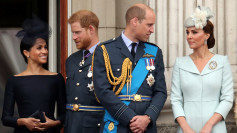Lawmakers in the United Kingdom voted in favor of Prime Minister Boris Johnson's Brexit Withdrawal Agreement Bill or WAB. The bill won by a majority of 99, ultimately giving the green light for the UK to leave the European Union with an exit deal on January 31.
UK lawmakers voted 330 to 231 in favor of WAB. The voting meant an exit deal agreed with the EU in 2019 will take effect in months to come. Brexit has been on and off the table for three years now with political observers still mix on whether the move does the UK good or bad in terms o geopolitical relations.
The UK had been a member of the EU for more than four decades. Now, observers sit restless as they wonder about the economic repercussion of the breakup. Businesses have started to worry about the looming increase in tariffs and the cost of production with Brexit.
Pro-Brexits are adamant that leaving the EU brings more good to the economy and citizens of Britain. For instance, Britain now has more freedom to establish foreign relations with other countries and could seek an independent seat at the World Trade Organization.
The UK now has more control over its laws and regulations instead of merely being compelled by the EU.
Some observers believed that UK's leaving of the EU has to do with its aim to protect its security. Without the EU, Britain has full border control and may now limit entrance of immigrants.
The UK could save money in years following its departure from the EU. Britain was paying billions of pounds yearly to keep its membership with the EU.
As for trade, the UK can now have independent trade relations with big economies such as the United States, China, Japan, and India. It could also open more opportunities for small businesses.
Finally, jobs will remain inside Britain, opening more opportunities for their own citizens.
After exit on January 31, Britain will enter a transition period up until December 31, 2020.
During the transition period, Britain will continue to abide by the EU trade regulations until Johnson negotiates a free trade deal. The prime minister is confident he can close a free trade deal. The two parties also need to sort out arrangements for data sharing.
The fears among businesses are that if Johnson failed to strike a no free trade deal, then there will be complicated checks and taxes on UK goods transported across the EU. The thing is, Johnson is not interested in extending the transition period, deal or deal at all.






